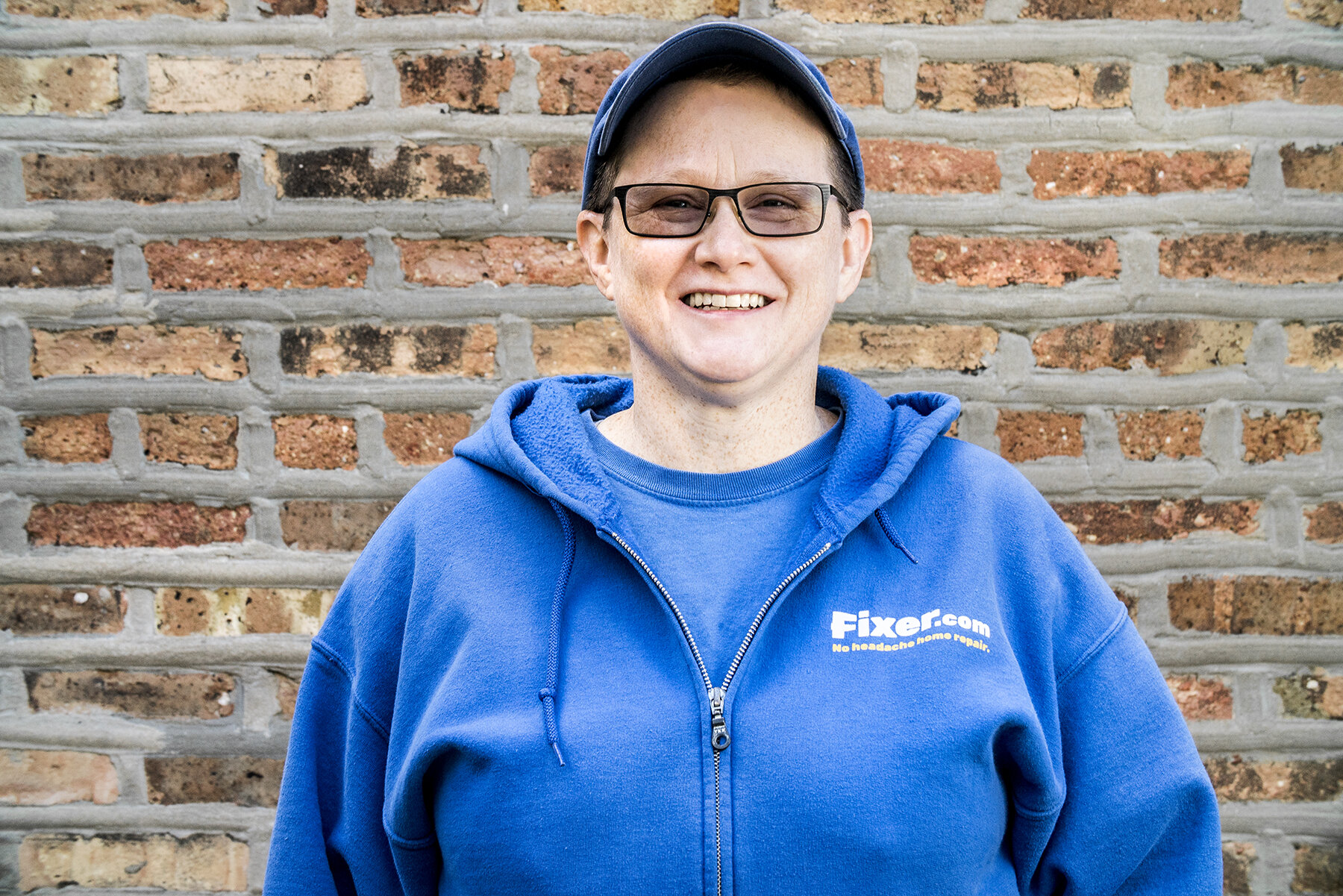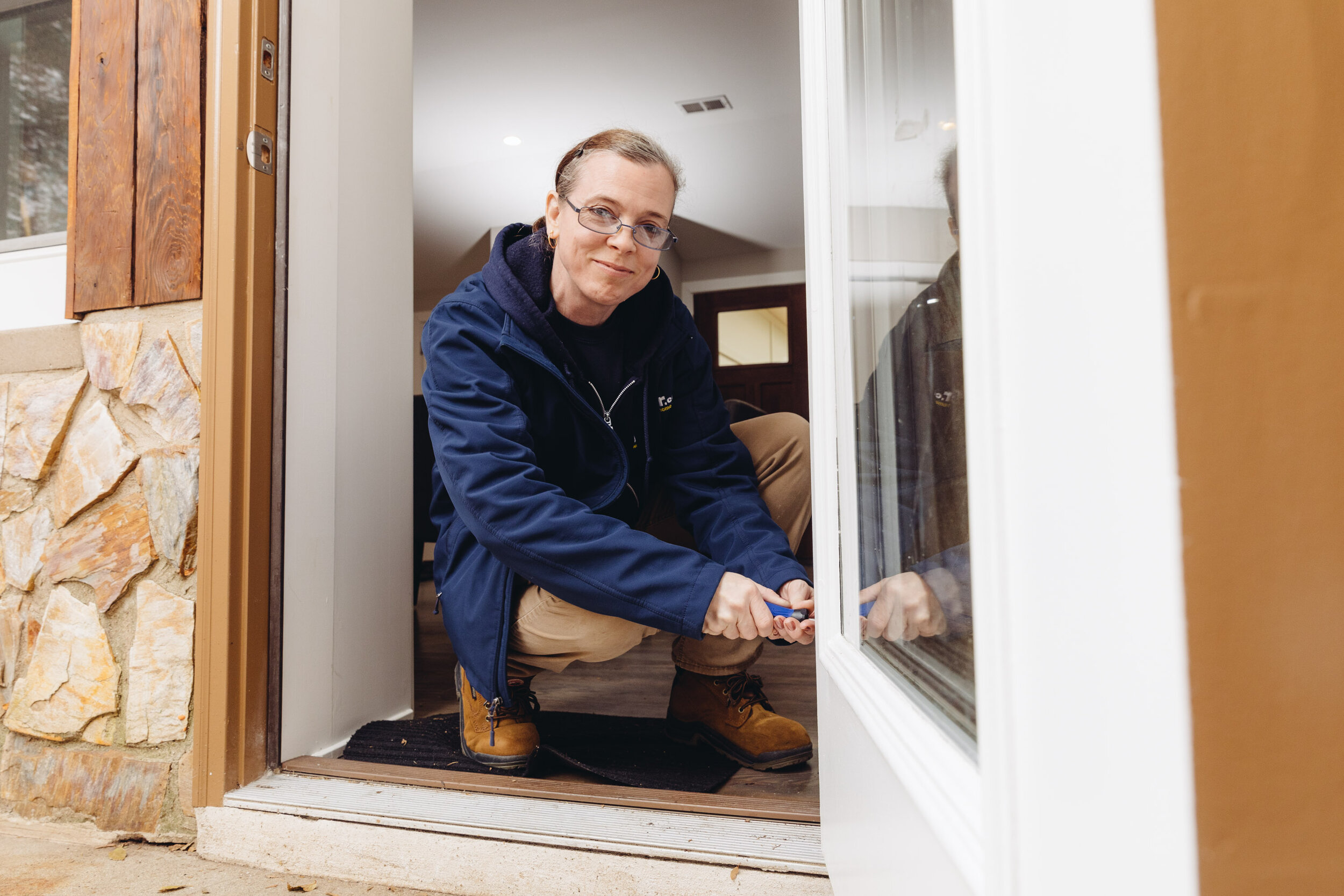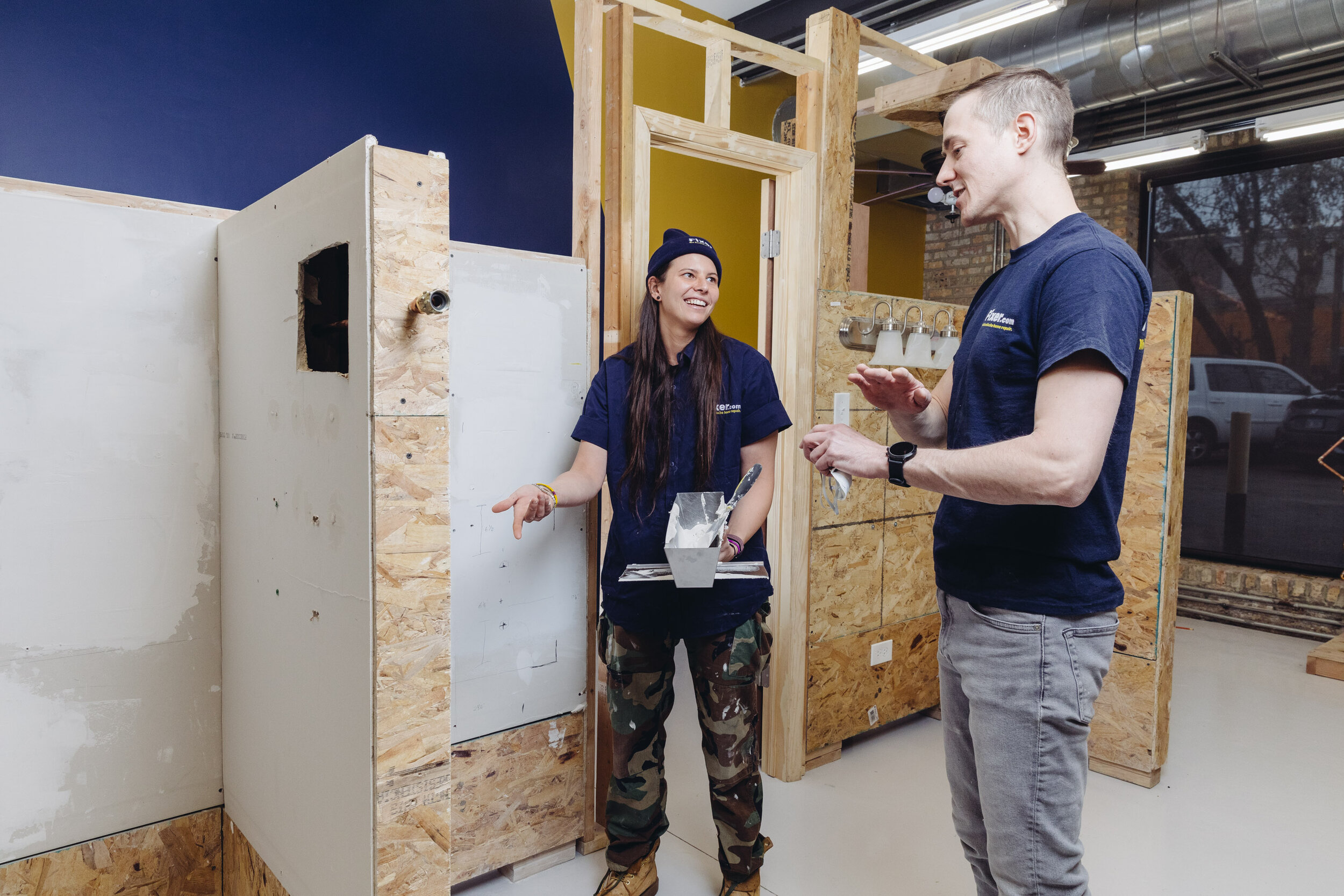Fixer Spotlight – Nikki, Linda, and Becky: “Fixer truly wants you to succeed.”
Nikki, Linda, and Becky are some of our favorite Fixers. They talk about their experiences with customers, why diversity is important, and why having the visibility of a female Fixer changes everything… now and for future generations.
What were you doing before you started paid training with Fixer?
Nikki: I was doing contract work, helping with signage. I’ve also worked for a small business, making reclaimed wood tables. I owned my own Etsy, making products for people when I had time.
Linda: Before this, I was on a demolition crew for a local nonprofit – people would want to tear down their old house to build a new one. We would tear down to put as little in the landfill as possible, for recycling and reuse purposes.
Nikki: We didn’t know each other at that time, but I would actually go and get wood to use for tables that was pulled out of the demolition.
How and why did you decide to become a part of this industry?
Linda: I always had a knack for fixing things and wanting to fix things that were broken. If I had a lamp that broke, I wanted to go in there and put it back together. I like puzzles a lot. Everything you work on is like a puzzle
Nikki: I want to acquire skills that can teach me how to build what I need. My goal in life is to become as self-sufficient as possible.
Becky: I’m actually a handyperson by trade – I owned a home repair business in the 90s/early 2000s. I also worked at Home Depot and I then was a fleet manager at a moving company. I learned a great deal at that job in terms of customer service and negotiation, but I wanted to get back something that felt more meaningful and more active: I hated sitting at a desk.

How did you find out about Fixer and what made you want to work here?
Linda: After I went through training at that nonprofit organization, they help you find employment. I didn’t know about Fixer before I came to the interview. I was drawn to Tracy when I met her during the interview – her personality and the way she approached people – it was more about the person than the position.
Nikki: I liked that Fixer was about bettering employees’ lives and trying to do the right thing, promoting a product that’s honest and fair. And their mission, too – I didn’t see any other company promoting this type of idea. I remember looking on Indeed and what stood out to me was that it said, “Fixer is not a boys’ club.”
Becky: I remember very clearly reading an article about Fixer from DNA Chicago. I went to Fixer’s website and applied within an hour: The fact that Fixer’s commitment from the beginning was to make a sustainable work environment for employees with benefits and guaranteed 40 hours – most companies cannot or will not offer that. There are a lot of 1099-basis or independent contractors in this industry; it’s a hard life. I’ve been doing this work for about 30 years and I was not in a position to be able to come into a place that wouldn’t pay me a living wage in order to provide benefits, or that was going to pay me more money but not provide the security of sick time and health insurance.
Also, the training environment aspect too – from the beginning, we’ve been committed to teaching people how to do this work and to hiring women. Women are more comfortable having a woman in their house.
Had this been around in the late 90s/2000s, I never would have stopped doing this kind of work. 9/11 did a lot of damage to the home repair industry because people just stopped doing work – they kind of holed up in their houses and stopped thinking about the future for a little while. Bigger companies were able to sustain that hit, but as a small business owner, I could not.
What does diversity mean to you? Why is it important at Fixer?
Linda: Seeing nobody else that is like you. You’re not just seeing the same bricks in the wall – you’re seeing the differences in the bricks. There’s men, women – colors, nationalities, different languages.
Nikki: Age is a big thing you don’t see enough diversity in. I like to see a variation in age because it brings a lot of different ideas and the ways people think. Fixer has a big range and we all treat each other with respect, which is nice.
Becky: We’re in a diverse world and city, and there has been denial about who has skills. The more different kinds of people we bring into any business, the richer our bucket of skills and experience is. People can approach things from different directions and it makes the world overall better.
The more diverse people show up, the broader the appeal will be for customers who want to work with us or for future Fixers. For women who work in the trades, especially, they report not seeing people who look like them doing the work that they want to do. I’ll go into homes and these little girls will be watching what I’m doing, fascinated. And their mom or dad will tell them, “Yeah, you can be a Fixer when you grow up.” That can change everything – that they can think that they can do something they didn’t think was for them, or that no one ever told them was for them.
Given that handywork/home-repair is typically referred to as a male-dominated industry, what has your experience been as a woman?
Linda: I was on an all-male crew with the demolition team, and there were a few times where it was a bit chauvinistic. Once you hold your own, they realize, “she’s not frail and dainty; she can do the same things we’re doing just fine.”
Being with Fixer, some people are surprised when I come in, but I haven’t had any bad experiences. It’s all been positive, especially when I come in and get the job done and customers say, “Wow, you did that in half an hour.” You come in and do something that requires strength in a short amount of time and it saves them money… they’re pretty happy.
Nikki: Women that hire us love it. I would say that the communication styles are different, and I’ve had some men who are surprised or they say, “Oh, I would have done it, but…” Women tend to be more receptive than men.
Becky: Most of my working life, I have not worked in “traditional” female fields. I do feel the world is changing ever so slightly. Women are thrilled. Responses from men vary.
A lot of our customers come to us because we’re different, but occasionally, you’ll get some veiled questions or skepticism. Some of our new trainees may feel bad because they don’t have a lot of experience… but what they do have is good training and the backing of a whole team of people who do have a lot of experience and are willing to help them learn.

What’s a lesson that has stuck with you since you joined Fixer?
Linda: There may be times when you’re frustrated, but just don’t give up. Keep pushing through. Nikki and I have both been here over a year and things have gotten easier over that time.
Fixer really has a positive mindset no matter what – it was okay if you didn’t know how to do something; it wasn’t frowned upon. It’s an open learning environment, and you can ask people how they did something. You have to remember that there are 50 million fixtures out there, for example, and each one is different.
Nikki: We all know how to twist a bolt or a screw, but one of the things you don’t think about is how you physically have to twist your body to get underneath a kitchen sink, for example.
I think one of the most important things, especially in training, was to take the emotion out of it. We’re all definitely trying to make everyone’s lives easier, so you should never be afraid to ask a more experienced Fixer if you need help.
Becky: The two things that feel most important: 1. Read the instructions. It’s a reminder that I will always have things to learn. 2. You know what you know, but it’s probably more important to know what you don’t know: Know when to stop and say, “Okay, I’m not smart about that yet.” Ask and consult or provide a referral. I would rather not be in the middle of something and realize I’m out of my depth. It’s okay to take a step back. I think that’s a hard lesson, especially for people who are newer.
What does a great day at work look like for you?
Linda: When drywall and painting jobs come out really nice, that’s one of the best days for me. It’s artistic, not finite – and it actually takes a lot of skill to make drywall look good.
Nikki: My ideal day is one where I don’t feel rushed but the day is full – 3 jobs is a good day. I also like when there are multiple ways to do a job and I can figure out what the most efficient way to finish the job is. I like having days where I feel like I personally am making customers’ days better.
Becky: A good day is when I feel like I have the right tools; I’m able to make a change and make something better for a customer. It’s really awesome when you get someone who says, “I didn’t think that was going to work again!” There is a certain amount of instant gratification.
Our mission is: We Fix Things. We Build People. Can you give an example of how the Fixer community takes that to heart?
Linda: In the beginning there were a lot of jobs that I had to turn down because I didn’t know how to do them. Tracy noticed that I was bummed out and we talked. She said, “The training center gives you a foundation to build upon.” It was about building me up so I didn’t get discouraged. It’s okay that someone doesn’t know how to do something, you’ll get better – it’s just going to take time.
Other Fixers will sit with you and tell you how they did something, showing you their process. My coworkers encouraged me to get better and be better.
Nikki: Fixer provides experiences which get people in a mindset of being independent. You are the deciding factor in how your day goes. It makes you grow pretty quick.
Becky: It happens here all the time in a variety of ways. People come into the training center with zero experience, but they have aptitude and a desire to learn and we teach them a trade. At the end of a few months, they may not be master Fixers, but they have marketable skills with the ability to make a living doing this work, and with a framework of support. Things don’t go perfectly all the time, but we try – and if it doesn’t work, we try again.
Fixer also provides us with opportunities for growth, ways to learn new things as we expand our service offerings. It’s really exciting to see where trainee graduates were a year ago and then to watch them grow and mentor others.

What’s your favorite kind of handyperson problem to solve?
Nikki: Everything is always different, so it’s hard to say. I like harder jobs because of the challenge.
Linda: My favorite is when things go well – when I can do the job and make it right.
Becky: I like the puzzles – the diagnostic aspect of fixing, like electrical and plumbing.
What do you think people should know about working at Fixer?
Nikki: We’re a startup with big ideas and we’re figuring out as we expand. Fixer takes feedback really well and listens to what you have to say. They actively give you an outlet if you have ideas. There’s going to be a lot more to come.
Linda: It’s good for people to know that we’re just starting. We’re steadily open to ideas on how to get there; how to create the best working environment for every single person that works here.
Becky: This is a place that if you come in with an open mind and heart about what we’re trying to do, then you will go far. It’s an adventure. They give you the tools – they truly want you to succeed.
Tell us about a favorite memory working at Fixer so far.
Nikki: The thing I remember the most is my first day out on jobs alone. Not sure it’s my favorite but it’s definitely memorable: It was a quick moving day that I’ll never forget. I was thirsty to get out there and it was humbling.
Linda: That’s a hard one because there are a lot. But I will never forget the day that Tracy came in and talked to me when I was feeling discouraged. She took time to figure out what was wrong.
Becky: I had a trainee with me; there were a couple small tasks. One was a broken lightbulb that the customer was afraid to get out, so we did that and replaced it. They also had a ceiling fan light fixture, and the light was really dim. We replaced the bulb, but the light was still dim. I walked over to where the remote control was and held the light button – and the light got brighter.
The customer walked over to me and said, “What did you do?!” and I showed him how the button worked. I said, “You must have accidentally held the button down too long and the light dimmed.” He inherited the house; he didn’t know. It’s knowledge he didn’t have before. He was miserable, and had it been another company, he may have paid them to replace the entire ceiling fan unnecessarily.
And those types of fixes are simple – you know, it may be the push of a button – but I still like to walk the customer through things so that they get a little bit of product knowledge and education. The simple fixes are important because they’re honest.
When you’re not busy Fixing things, what do you enjoy?
Nikki: I like fixing things outside of work. It’s when I learn the best; there’s no pressure with a customer’s time. I like to fix little things around my place: Installing a ceiling fan where there used to be a medallion in my ceiling. I can figure out anything – it just takes time.
Linda: I like being with my kids and my grandkids.
Becky: I like to cook, read, work on my motorcycle. I have a second degree black belt in Seido karate. I foster cats for one of the no-kill shelters. I make lamps from interesting objects – a tub faucet, a bowling ball, things like that. I threw myself an axe-throwing party once; that was fun.
Do you have a female role model or favorite woman from history?
Nikki: Joan of Arc. She’s a badass.
Linda: Women during the first World Wars. Rosie the Riveter. Women who went to do jobs that were specifically male-dominated. They went out there and opened the first doors.
Becky: So many. There are a lot of famous women that no one’s heard of. Women like Frances Willard, who was a famous suffragist buried in Rosehill Cemetery. She was instrumental in improving social services, but getting women the right to vote. Women who spent their lives trying to break barriers, who disguised themselves as men because they wanted to do “men’s work.” Those are the women who ultimately made it possible for people like me.
Would you encourage other women to pursue a career in the trades?
Nikki: Yes. I think we actually fit under kitchen sinks easier than men. I think women are very intuitive. I would argue that women are better at this job because of our attention to detail, our communication, and approaching things in a logical way. Girls rock!
Linda: We pay more attention to what the finished product looks like as opposed to just functionality. Attention to detail resonates well with customers.
Becky: Absolutely. Women are creative. We can learn to do anything and we can do that work. For every little girl that wanted to build with the Legos and Lincoln Logs and take stuff apart and see how it worked… It is doing them a disservice to encourage them to be quiet and demure and do something more girly. What’s girly? What girls do.
It’s not always easy; it’s very hard – but we do hard stuff all the time. I think we’re up for the challenge – the more of us there are, the easier it will get. I feel like opportunities like this are important – it’s so good for women and for girls to see someone who looks like them doing things that they want to do.
